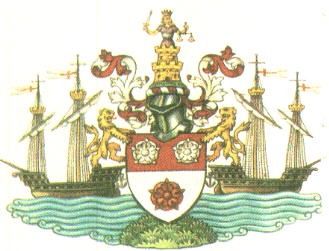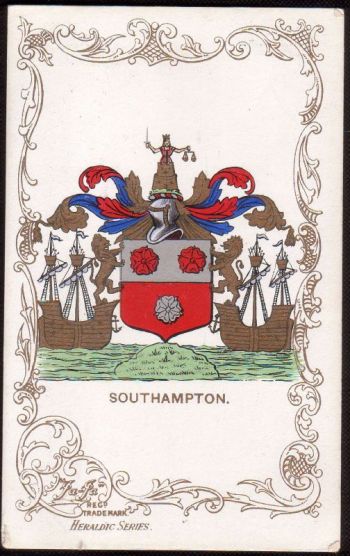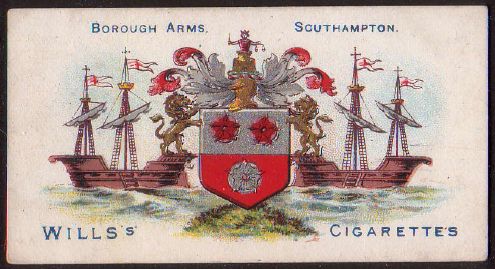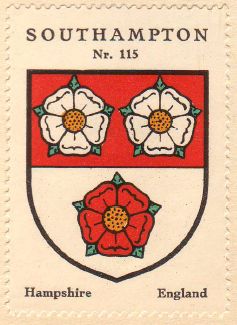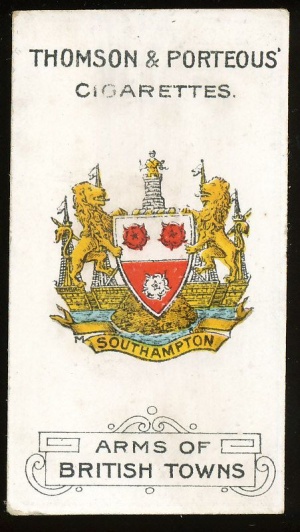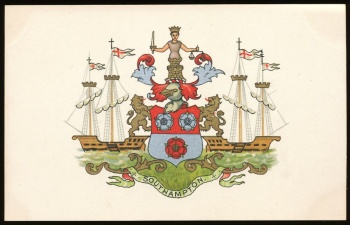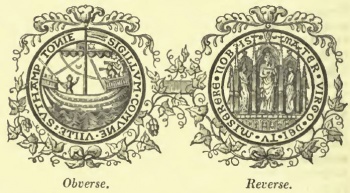Southampton (England)
| Heraldry of the World |
| British heraldry portal Civic heraldry of the United Kingdom |
|
SOUTHAMPTON
Official blazon
Origin/meaning
The arms were officially granted on 4 August 1575.
The original grant actually refers to the addition of supporters to the 'ancient' arms of Southampton. The arms are believed to date to the 13th century. The red and white roses are linked with the Royal houses of Lancaster and York. Henry, Duke of Lancaster, his son in law John of Gaunt and John's younger brother, Edmond, Duke of York, were all involved in expeditions which set out from Southampton. It is thus likely that the Princes granted the roses to the city.
The complicated armorial bearings show two small lion supporters, probably representing the English lion, standing each on a warship, indicating the importance of Southampton as a harbour and naval city. The whole is placed on a compartment of water and a grassy mound.
The crest shows a tower, symbolising the fortress and from the crests rises the figure of Lady Justice, symbol of justice.
| The arms as used on a JaJa postcard +/- 1905 |
The arms on a Wills's cigarette card, 1906 |
| The arms in the Coffee Hag albums +/- 1925 |
The arms on a Thomson & Porteous cigarette card |
| The arms as used on a Faulkner postcard +/- 1905 |
The seal as shown in 1845 |
Contact and Support
Partners:
Your logo here ?
Contact us
© since 1995, Heraldry of the World, Ralf Hartemink
Index of the site
Literature : image send to me by mail. Information from a leaflet provided by the Southampton City Archives.


